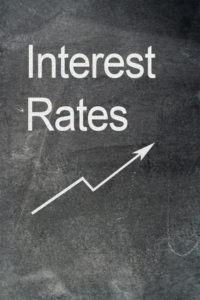If you are a business looking to secure money in order to grow your business, cover unexpected expenses, fulfill a large order or just pay your bills, you have a number of options to choose from. Traditional bank term loans are available but can be difficult to get if you are a new business or one without significant collateral or assets. Additionally, a small business loan from a corporate bank is notoriously slow and bureaucratic process requiring several weeks of waiting before getting your money, if you even get it at all.
A Collateral-Free Option: Unsecured Business Loans

Unsecured business loans, however, can often include higher interest rates as compensation for the lack of collateral. This means that you will most likely pay more for your money in order to get that loan so it can be viewed as a trade-off. This weighty decision is one any business must consider before securing an unsecured business loan.
The Account Receivables Factoring Option
Account receivable factoring or invoice factoring works differently than both regular startup small business loans and unsecured business loans. Instead of relying on you to sign over your assets as collateral, with factoring receivables you sell your current invoices to the invoice factoring company. You get the cash you need right away and the factoring company takes over the responsibility of collecting the money owed to you from your clients.
Similar to other types of financing options factoring services charge a fee or percentage for providing you with the cash you need right away. The terms of the agreements are listed in a clear, easy to understand language. So regardless of which financing option you choose it is a good idea to consider and weigh the cons and pros of each of them and determine which is best for your situation.

 Since 1991 I specialize in Invoice Factoring, PO financing and ABL facilities. I currently work internationally with companies in the US and Canada via our internet marketing division. Specialties: Accounts Receivable Factoring and Payroll Funding for Manufacturing, Oil & Gas, Telecommunications, Wholesale Trade Distribution, Staffing and Transportation. I always enjoy helping companies rise to the next level of success.
Since 1991 I specialize in Invoice Factoring, PO financing and ABL facilities. I currently work internationally with companies in the US and Canada via our internet marketing division. Specialties: Accounts Receivable Factoring and Payroll Funding for Manufacturing, Oil & Gas, Telecommunications, Wholesale Trade Distribution, Staffing and Transportation. I always enjoy helping companies rise to the next level of success.

